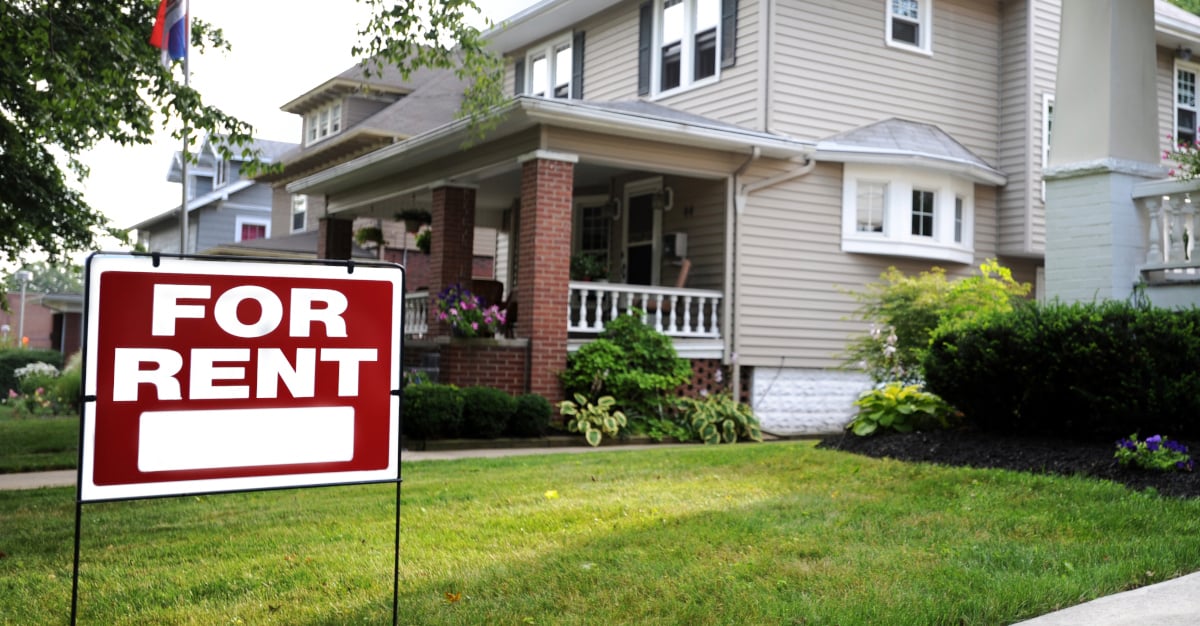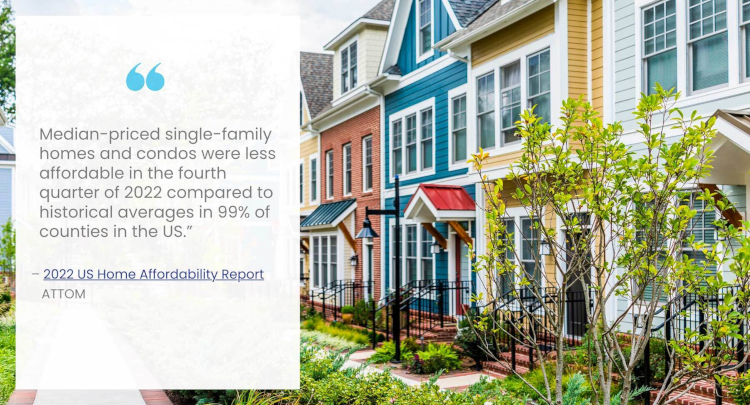Down payments are typical in private lending. Real estate investors usually accept down payments as a necessary part of financing their rehab, focusing instead on finding the lowest rate. But your down payment has a huge impact on your business. Down payments leave you cash poor in a cash intensive game.
Residential Capital Partners
Recent Posts
Beware the down (down payment, that is!)
Topics: Fix-and-Flip Financing Tips, real estate investing, Private Money Lenders
When choosing a lender, most real estate investors don’t put much thought into the origin of the lender’s source of capital—or whether they sell their notes. But choosing a balance sheet lender goes a long way in your ability to control your own destiny. In the words of Rick Morgan, Chief Investment Officer at Residential Capital Partners, “If your lender is selling your loan to Wall Street, you’re not a customer—you’re a trade.”
Topics: Property Investment Strategies, real estate investing
5 Common mistakes seasoned real estate investors make
Seasoned investors have much to be proud of—and a lot to protect. With numerous deals behind you and the balance sheet to prove it, it can be tempting to loosen the reins of your underwriting standards, lose discipline when pulling comps, or believe your success will prevent you from failure. It’s easy to forget the very fundamentals of house flipping that helped you build your business, but to be the best at anything takes continued diligence, even at the height of your game.
Over the last 15 years of serving the SFR industry, these are the most common mistakes we see made by seasoned real estate investors.
1. Falling In Love With the Deal
Sometimes investors will stretch to buy a property when a more disciplined version of themselves would have passed because the potential profit margin was just too thin. An all-in budget of 65-70% of the ARV is what brought them to the dance. But, in a seller’s market, they stretch to 75-80% of the ARV, because they fall in love with the deal. Throwing caution to the wind, they wind up eating it when any number of small mistakes erodes their flimsy margin.
Stick to your discipline of not being in the deal too high. There’s always another deal coming down the path.
2. Staying Married to a Deal
No matter how good your rehab turns out, there are market factors outside your control. Interest rates may rise, taxes and insurance may go up, inflation may push materials to levels you never expected. As a seasoned investor, you know this well. And yet, even as a market softens, the seasoned investor can hold onto a deal that he or she knows should be blown out and sold fast.
Topics: Property Investment Strategies, real estate investing
What Does the Affordable Housing Crisis Mean For Real Estate Investors?
Unless you’re investing from under a rock, you’ve probably read the headlines: affordable housing in the US is hard to find right now—both for the typical homebuyer and real estate investors. It may be tempting to sit this season out until interest rates start to come down and inventory becomes more abundant, but this is exactly the right time to maximize your profits for both fix-and-flips and single-family rentals.
To make the most of this competitive market, first learn the factors at play causing the crisis and then take stock of the opportunities at your feet: fix-and-flips, rentals, and re-fis.
What’s driving the affordable housing crisis?
The latest research on the 2023 affordable housing crisis by the National Homebuilders Association shows that 64.5M out of 123.5M total American households are able to afford a $250K home. Another 39M can afford a $150K property. The kicker is that the median price of a new single-family home is just over $425K, a price out of reach for 73% of households in the US. Add in the high cost of land, lumber, materials and manufacturing issues still rippling forward from 2020, and you begin to understand why the gap between what US households can afford and what builders can deliver is, in fact, a crisis.
Likewise, high interest rates are keeping families from moving out of their starter homes. Just five years ago, a couple could buy a starter home for $250-$300K, live in it for a year or two while they raised some money for a down payment on a bigger house, maybe worth $450K. But the fed keeps hiking up interest rates, which means mortgage lenders are hiking theirs too, which means the average US homeowner can’t afford the bigger, more expensive house. They’re staying put.
So the supply of available homes available is tightening while the demand has remained the same or increased. Inventory is tight.
Topics: Property Investment Strategies, real estate investing
What Fix-And-Flip Loan Terms Really Mean
The terms of fix-and-flip private loans can differ from lender to lender, and sometimes even deal to deal. (Sadly, the bait-and-switch method still lives on in private lending. Luckily, our terms never change.) It’s a frustrating task to try and create an apples-to-apples comparison of loan terms, which is why sometimes investors eschew much of the information about their loans to focus on a single element: interest rate. But interest rates are only one influencing factor in the overall cost and quality of your loan. It’s mission-critical to understand each line item of your terms and know exactly how much you’ll have to bring with you on closing day (ideally… as little as possible!).
To understand the big picture, let’s unpack the most common terms written into a fix-and-flip private loan, and their impact on your ROI.
Amount Funded
It’s always a good day to get a check in the mail (or transfer to your account) from your rental properties. Your net cash flow is the money you get from your tenants, minus expenses and your loan payment.
Example: You purchase a $120,000 rental home. Tenants pay you $1,200 monthly. If your expenses and loan are $1,100, your net cash flow on a monthly basis is $100. Granted, $1,200 a year isn’t a large chunk of change. It’s more like the cherry on top of the other ways rental properties make you money. Compare it to the dividend of a stock; it’s likely not your primary reason for the investment, but it sure doesn’t hurt.
Related: Learn tips and tricks on calculating ARV from Michael Blatney, Portfolio Underwriting Manager.
Topics: Fix-and-Flip Financing Tips, Fix-and-Flip Lenders, Property Investment Strategies, real estate investing
5 Ways Rental Properties Make You Money
5 WAYS RENTAL PROPERTIES MAKE YOU MONEY (AND WHY YOUR REAL ESTATE PORTFOLIO NEEDS DIVERSITY)
There are many reasons today’s most prolific real estate investors are gobbling up single family rentals: Home values are rising. The dollar is shrinking. The construction of single-family properties hasn’t caught up with demand. More American families can only afford—or find—rental properties. But rentals aren’t just a trendy way to invest into today’s market—they’re a long term money maker. And the return on investment for rentals is likely higher than you’d expect, thanks to the multiple ways this investment pays you back.
Here are the five ways you can expect a return on your investment with rental properties:
1. Mailbox Money
It’s always a good day to get a check in the mail (or transfer to your account) from your rental properties. Your net cash flow is the money you get from your tenants, minus expenses and your loan payment.
Example: You purchase a $120,000 rental home. Tenants pay you $1,200 monthly. If your expenses and loan are $1,100, your net cash flow on a monthly basis is $100. Granted, $1,200 a year isn’t a large chunk of change. It’s more like the cherry on top of the other ways rental properties make you money. Compare it to the dividend of a stock; it’s likely not your primary reason for the investment, but it sure doesn’t hurt.
Topics: Property Investment Strategies, real estate investing
What to Know About Your Private Lender
Does this scenario sound familiar?
You find an amazing investment property. Your heart is set on it. You scramble to find a private lender to close the deal—and things fall apart. Perhaps the lender denies you because it’s not one of their target markets. Or you can’t get them on the phone and another investor beats you to the punch. Or maybe—most infuriatingly—a Wall Street market turn makes your lender lose confidence and you’re left at the closing table without a closed deal wondering…. where did I go wrong?
There’s only one way to prevent every one of these scenarios: begin with the end in mind. (This is also one of Stephen Covey’s seven habits of highly effective people.) Select your lender before you look for properties, and do so with scrutiny. Choosing your lender first allows you to position your dominos so you can knock them all down, flawlessly, on closing day.
There are numerous private lenders out there. So how do you begin to compare? Ask the following questions, and the right relationship will become apparent:
Here are some things to consider when budgeting to flip vs. hold.
What is your private lender’s source of capital?
Few investors pay much mind to where their lender’s cash comes from. But you should, because many private lenders are backed by Wall Street sources of capital. So when the capital markets are all up and to the right, these private lenders close a high number of deals. But when the winds of Wall Street change—which they do from time to time—they cancel deals, alter terms or close up shop until the wind blows over leaving you, the investor, stranded.
Look for a private lender that uses their own money: a balance sheet lender. Residential Capital Partners is a balance sheet lender that controls its own destiny as well as yours through use of its own capital on each closed deal. That’s how we thrived during the 2008 housing crisis and throughout the 2020 pandemic. We approved countless deals for investors whose initial lender changed the terms of the deal at the closing table or flat out walked away from the closing table during a bear market.
Topics: Fix-and-Flip Financing Tips, Fix-and-Flip Lenders, Investment Property Strategies, Private Money Lenders
Are You Overspending on Your Rehabs?
According to the 2022 US Home Affordability Report by ATTOM, median-priced single-family homes and condos were less affordable in the fourth quarter of 2022 compared to historical averages in 99% of counties in the US. Moreover, major home-ownership costs now eat up 32% of the average national wage, the highest percentage in fifteen years.
With high interest rates, soaring property values, and inflation forcing the average home buyer out of the market, many real estate investors today have pivoted their investment strategy to focus on single family rentals. The problem is their rehab budget hasn’t pivoted. Many flippers are using the same approach to rehab rentals as they would a flip—to the detriment of their ROI.
Here are some things to consider when budgeting to flip vs. hold.
Rehabbing Fix and Flips vs. Rehabbing Rentals
Every budgetary concern with your flip needs to align with your exit strategy. It’s not simply about rehabbing too much or too little (although that’s part of it); It’s about choosing upgrades that align with your ultimate goal, to flip or hold. Buyers and renters evaluate and use your property differently, so every decision you make—from which rooms to prioritize, to landscaping, appliances, and finishes—needs to take their perspectives into account.
Topics: House Flipping Market Insights, Housing Market Trends
Should you invest in SFR rental properties as interest rates continue to rise?
Rising interest rates and inflation shouldn’t deter you from acquiring long-term rental properties.
In the current market, it can be difficult to determine whether now is the right time to acquire long-term rental properties. Interest rates are still on the rise. According to Bank Rate, the current average rate for a 30-year fixed mortgage is 7.04%, up 12 basis points since September 30, 2022. While inflation appears to be leveling out on some fronts, the buying power of average American families cannot withstand the high cost of money today. This is forcing many Americans to step back and assess the feasibility of buying a home right now.
So, why is it still the right time for the SFR investor to acquire long-term single-family rental properties?
Topics: Investment Property Strategies, Single family rentals
UNLOCKING THE VALUE OF SFR INVESTMENTS
When it comes to investing in single-family real estate (SFR), the best investors are focused, disciplined and strategic. In this article, we’ll explore the merits of two different investment strategies:
- Strategy 1: Fix and Flip (buy, rehab, sell)
- Strategy 2. Fix and Hold (buy, rehab, rent)
On the surface, these investment strategies seem quite simple, almost colloquial to the conversations held at almost every cocktail party or backyard BBQ. Who doesn’t have a friend or family member who told them the story of a house they bought low, sold high, and took the profit to the bank?
By that same token, with the maturity of the SFR asset class over the past decade, who hasn’t heard of the BRRR method—the Rich-Dad-Poor-Dad approach to wealth creation via real estate? Or, knows someone in their circle with a small portfolio of rental houses that provides passive income on the side. The investment in housing as a side hustle or full-time profession seems almost as old as the American Dream of home ownership.
But investing in single-family real estate is not as easy as the newest HGTV show would have you believe. As stated earlier, it requires focus, discipline, and strategy. And the best SFR investors combine the art of the flip with the science of the rental as they walk toward the finish line of wealth creation. If all we have is time and money, let’s explore how we can best utilize both for ultimate success in this game, otherwise known as single-family rental investments.
Topics: Single family rentals
4 Benefits of Having Single-Family Rental Properties in Your Portfolio
Demand for affordable single-family homes is (still) astronomical! If you're a seasoned rehab professional, you know that between sky-high prices and bidding wars, getting your hands on an affordable rehab has been challenging. The good news is that once you get a property under contract, your margins for profit are strong – short term and long term. But, given market conditions, now may be the right time to go long on single-family rental properties to build wealth over time. With interest rates rising, the cost of a mortgage may force prospective buyers to keep renting. And given the stark reality of inflationary pressures in this market, investors can use single-family real estate investment to hedge inflation while building wealth over time.
Topics: Single family rentals
Using the BRRRR Method? Here’s what to do before interest rates rise.
After years of low interest rates, it seems 2022 is the year we’ll see them on the rise. With the Federal Reserve planning to embark on a series of interest-rate hikes this year beginning in March, real estate investors are preparing for these predictions to potentially become reality.
Fortunately, smart investors work from a strategic point of view, and many apply the BRRRR model, which helps in situations like these. To refresh, the BRRRR (Buy, Rehab, Rent, Refinance, Repeat) Method is a real estate investment strategy that involves buying and rehabbing a property, renting it out, and refinancing the leased up rental property over a 30-year term at a fixed rate of interest. This Method provides an opportunity for passive income and a diverse rental portfolio. If BRRRR Method is one of your investment strategies, now is the time to lock in for the long-term.
Topics: Investment Property Strategies














